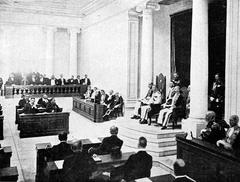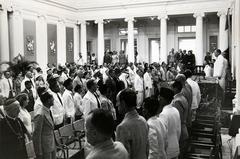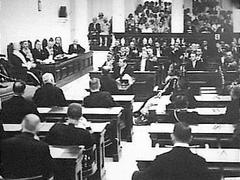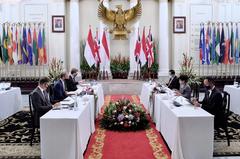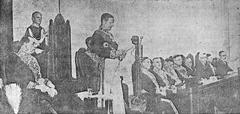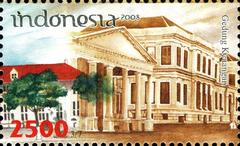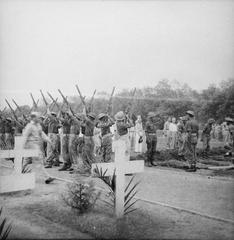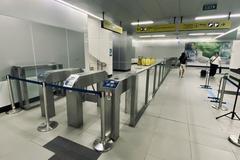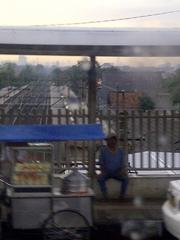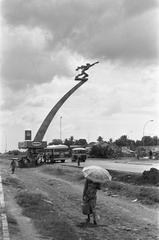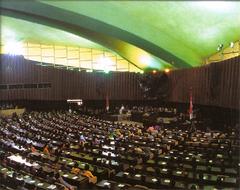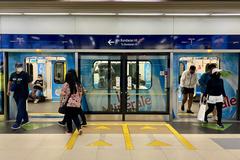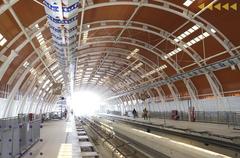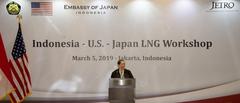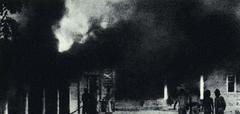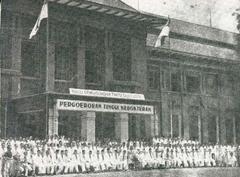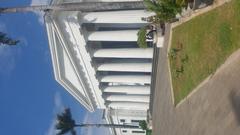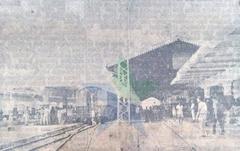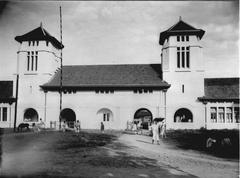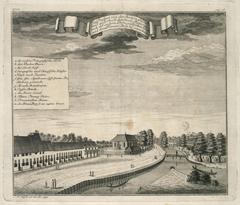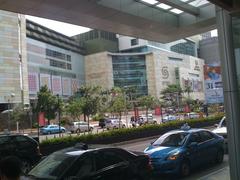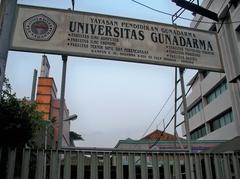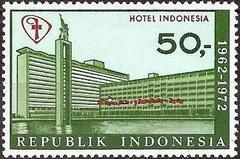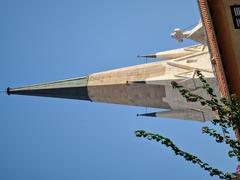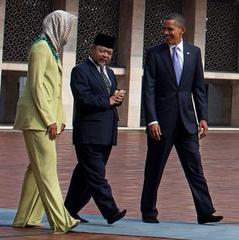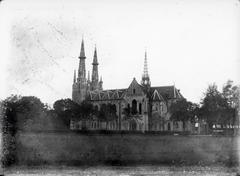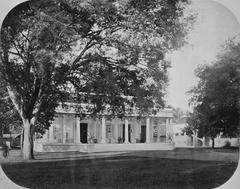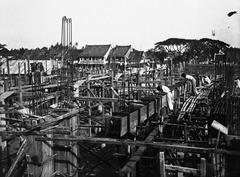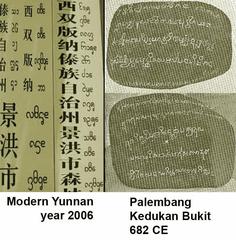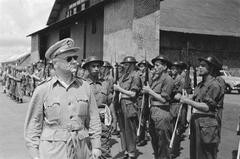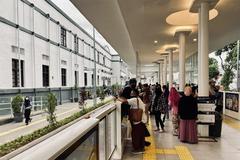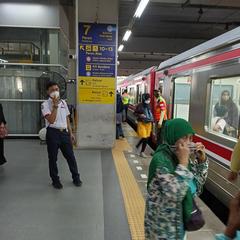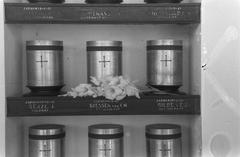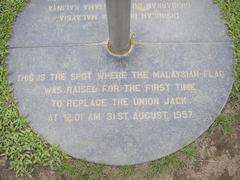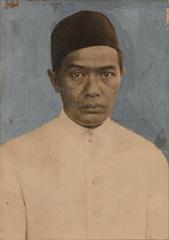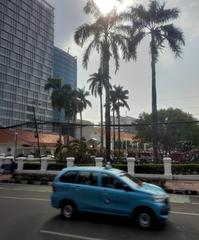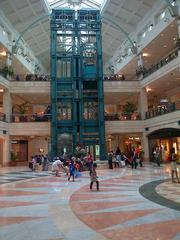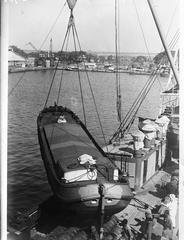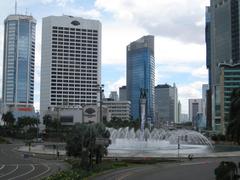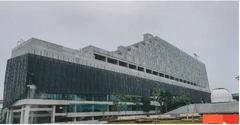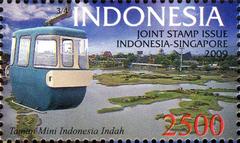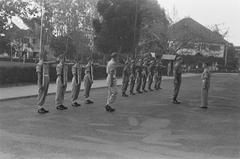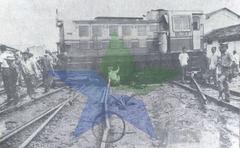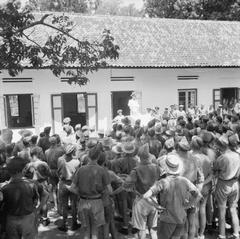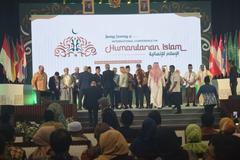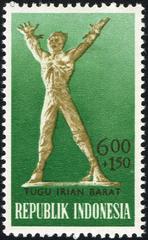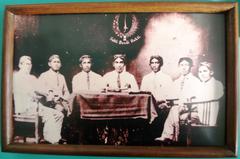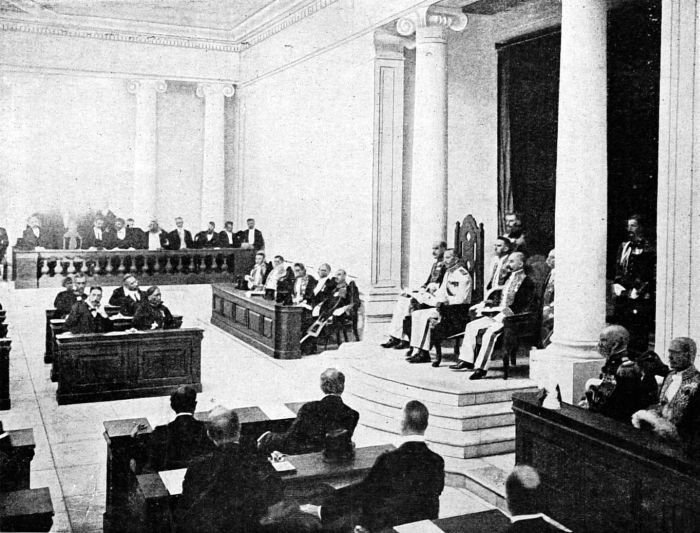
Pancasila Building Jakarta: Visiting Hours, Tickets, and Historical Significance
Date: 14/06/2025
Introduction
Located in Central Jakarta, the Pancasila Building—locally known as Gedung Pancasila—is a monument of immense historical and ideological value to Indonesia. Built during the Dutch colonial era, this neoclassical structure was the stage for pivotal moments in the nation’s path to independence. Most notably, it is where President Sukarno delivered his legendary speech on June 1, 1945, outlining the five principles of Pancasila, which remain the foundation of Indonesia’s national identity and governance to this day. Whether you are passionate about history, architecture, or Indonesian culture, this guide provides a comprehensive overview of the building’s historical background, architectural features, visiting hours, ticketing, accessibility, and nearby attractions to help you plan an enriching visit. For additional insights and up-to-date visitor details, consult sources such as Lonely Planet and Kompas.
Table of Contents
- Historical Overview
- Architectural Features and Significance
- Visitor Information
- Nearby Historical Landmarks
- Frequently Asked Questions (FAQ)
- Conclusion
- Visual and Interactive Resources
- Sources and Further Reading
Historical Overview
Colonial Origins and Transformation
Constructed in the early 1830s, Gedung Pancasila was originally the official residence of the Dutch army commander in Batavia (now Jakarta). Its neoclassical architectural style—with a grand portico, tall Corinthian columns, and symmetrical design—reflected European ideals of power and permanence (Lonely Planet).
In the early 20th century, the building was repurposed to host the Volksraad (People’s Council), the first semi-representative body in the Dutch East Indies. This transition marked its evolution from a colonial residence to a center of political and administrative activity, facilitating early political discourse and nationalist movements.
The 1945 Pancasila Speech
Gedung Pancasila’s most significant moment occurred on June 1, 1945, during the BPUPKI (Investigating Committee for Preparatory Work for Independence) sessions. Here, Sukarno delivered his seminal speech proposing Pancasila—the five foundational principles for the new Indonesian state (Kompas, Jakarta Daily). These principles are:
- Belief in One Supreme God (Ketuhanan Yang Maha Esa)
- Just and Civilized Humanity (Kemanusiaan yang Adil dan Beradab)
- The Unity of Indonesia (Persatuan Indonesia)
- Democracy Guided by Inner Wisdom in Deliberations Among Representatives (Kerakyatan yang Dipimpin oleh Hikmat Kebijaksanaan dalam Permusyawaratan/Perwakilan)
- Social Justice for All Indonesians (Keadilan Sosial bagi Seluruh Rakyat Indonesia)
This speech laid the ideological foundation for Indonesia’s independence, uniting its diverse population under the motto “Bhinneka Tunggal Ika” (Unity in Diversity) (IndoIndians).
Post-Independence Role and Preservation
Following independence, the building became part of the Ministry of Foreign Affairs, hosting diplomatic events, state ceremonies, and official meetings. It remains a living monument, carefully preserved to maintain its original architectural character and historical significance (Lonely Planet).
Architectural Features and Significance
Gedung Pancasila’s neoclassical design is noted for its imposing white façade, grand portico, and tall columns. The main hall, where the historic 1945 speech was delivered, is preserved with period furnishings and exhibits, allowing visitors to immerse themselves in the atmosphere of this momentous event. The building’s symmetrical layout, high ceilings, and expansive windows not only reflect colonial design but also symbolize ideals of openness and deliberation.
While restoration efforts have modernized certain aspects for accessibility and preservation, the building’s original features—such as wooden paneling and decorative cornices—remain intact. Ongoing maintenance is managed by the Ministry of Foreign Affairs to ensure its longevity as a heritage site.
Visitor Information
Visiting Hours
Gedung Pancasila is not open to the public for daily tours due to its continued use as a government building. Public access is generally permitted during:
- National holidays (e.g., Pancasila Day, June 1)
- Special commemorative events
- Educational group tours by appointment
Typical public visiting hours: 9:00 AM – 4:00 PM on open days
Closed: Weekends and regular governmental working days (except during special events)
Always verify with the Ministry of Foreign Affairs or Jakarta Tourism Board for the latest schedules.
Ticketing and Admission
- Admission fee: Entry is typically free for all visitors during public open days and official tours.
- Registration: Advance registration is required, especially for special events or group visits.
- Foreign visitors: No additional fee is charged during official open days.
Accessibility
- Wheelchair access: The building is equipped with ramps and elevators, but some historical areas may have limited accessibility.
- Visitor guidelines: Photography is allowed only in designated areas to protect the site’s integrity. Always follow official instructions.
Guided Tours and Virtual Experiences
- Guided tours (in Indonesian and English) are available during special events and by prior arrangement.
- Virtual tours and interactive exhibits are increasingly offered for remote visitors.
For arrangements, contact the Ministry of Foreign Affairs, Jakarta Tourism Board, or official travel platforms.
Nearby Historical Landmarks
Combine your visit to Gedung Pancasila with other central Jakarta attractions:
- National Museum: A comprehensive collection of Indonesian history and culture.
- Jakarta Cathedral: Neo-Gothic church dating to 1901, just a short walk away.
- Istiqlal Mosque: The largest mosque in Southeast Asia, located across from the cathedral.
- Lapangan Banteng & Merdeka Square: Important civic spaces rich in colonial and independence-era history.
Frequently Asked Questions (FAQ)
Q: What are the opening hours of the Pancasila Building?
A: Public access is typically granted on national holidays and during special events, from 9:00 AM to 4:00 PM. Confirm dates in advance.
Q: Is there an entrance fee?
A: No, entry is free during public open days and official tours.
Q: Are guided tours available?
A: Yes, by prior appointment and during special events. Tours are offered in Indonesian and English.
Q: Is the building wheelchair accessible?
A: Basic accessibility is provided, but some historic areas may be limited. Check in advance for specific needs.
Q: Can I take photographs inside the building?
A: Photography is only allowed in designated areas.
Q: How do I arrange a visit outside public open days?
A: Contact the Ministry of Foreign Affairs or Jakarta Tourism Board for group or educational tour arrangements.
Conclusion
The Pancasila Building is a unique testament to Indonesia’s journey from colonial subjugation to independence and democracy. As the birthplace of the Pancasila philosophy, it continues to inspire national unity and civic spirit. While daily access is limited, visiting on special occasions or as part of an organized tour offers a rare opportunity to experience a cornerstone of Indonesian history.
We recommend checking the latest information from official sources before planning your visit and considering guided tours for deeper insights. Enhance your trip by exploring nearby historical landmarks, and use resources like the Audiala app for up-to-date schedules and cultural content.
Visual and Interactive Resources
- High-quality images and virtual tours are available via the Ministry of Foreign Affairs and official tourism sites.
- Use interactive maps to plan your visit and explore the surrounding cultural corridor of Central Jakarta.
Sources and Further Reading
- Lonely Planet: Gedung Pancasila Visiting Hours, Tickets, and Historical Significance in Jakarta
- Kompas: Visiting the Pancasila Building in Jakarta: History, Tickets, Tips, and More
- Slideshare: Pancasila Building Jakarta: History, Significance & Visitor Guide
- Antara News: Pancasila Cohesive Power of Unitary State of the Republic of Indonesia
- IndoIndians: All About Pancasila Day
- Jakarta Daily: The History Behind Indonesia’s Pancasila Day
- The Jakarta Post: Role of Pancasila in Indonesian Modern Democracy
- Indonesian Ministry of Foreign Affairs
- Jakarta Tourism Board
- BPS: Statistics Indonesia Holds Ceremony to Commemorate Pancasila Day
